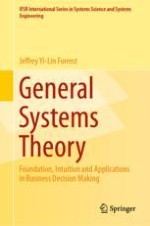This book demonstrates the theoretical value and practical significance of systems science and its logic of thinking by presenting a rigorously developed foundation—a tool for intuitive reasoning, which is supported by both theory and empirical evidence, as well as practical applications in business decision making. Following a foundation of general systems theory, the book presents an applied method to intuitively learn system-sciences fundamentals. The third and final part examines applications of the yoyo model and the theoretical results developed earlier within the context of problems facing business decision makers by organically combining methods of traditional science, the first dimension of science, with those of systems science, the second dimension, as argued by George Klir in the 1990s. This text would benefit graduate students, researchers, or practitioners in the areas of mathematics, systems science or engineering, economics, and business decision science.
